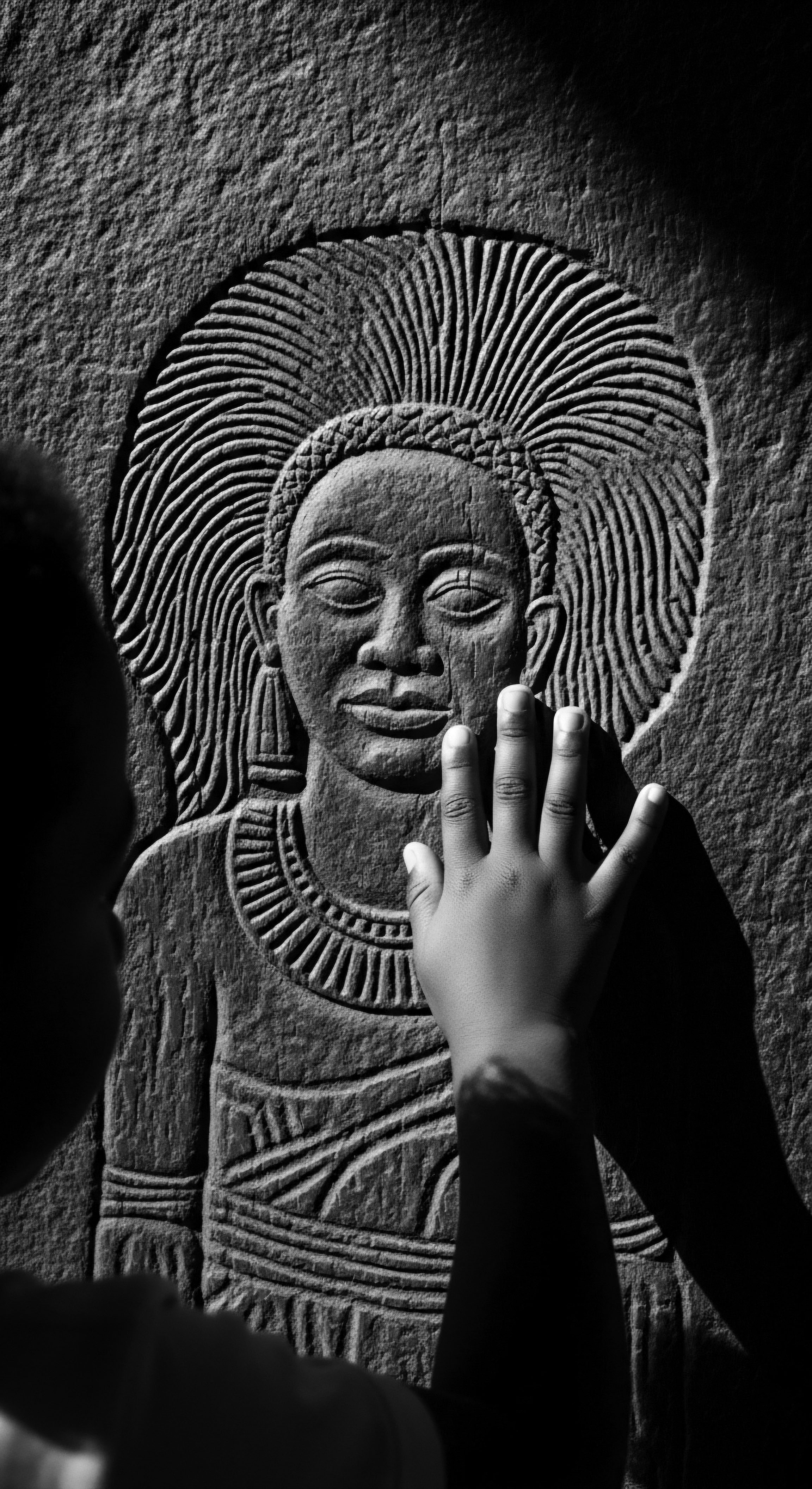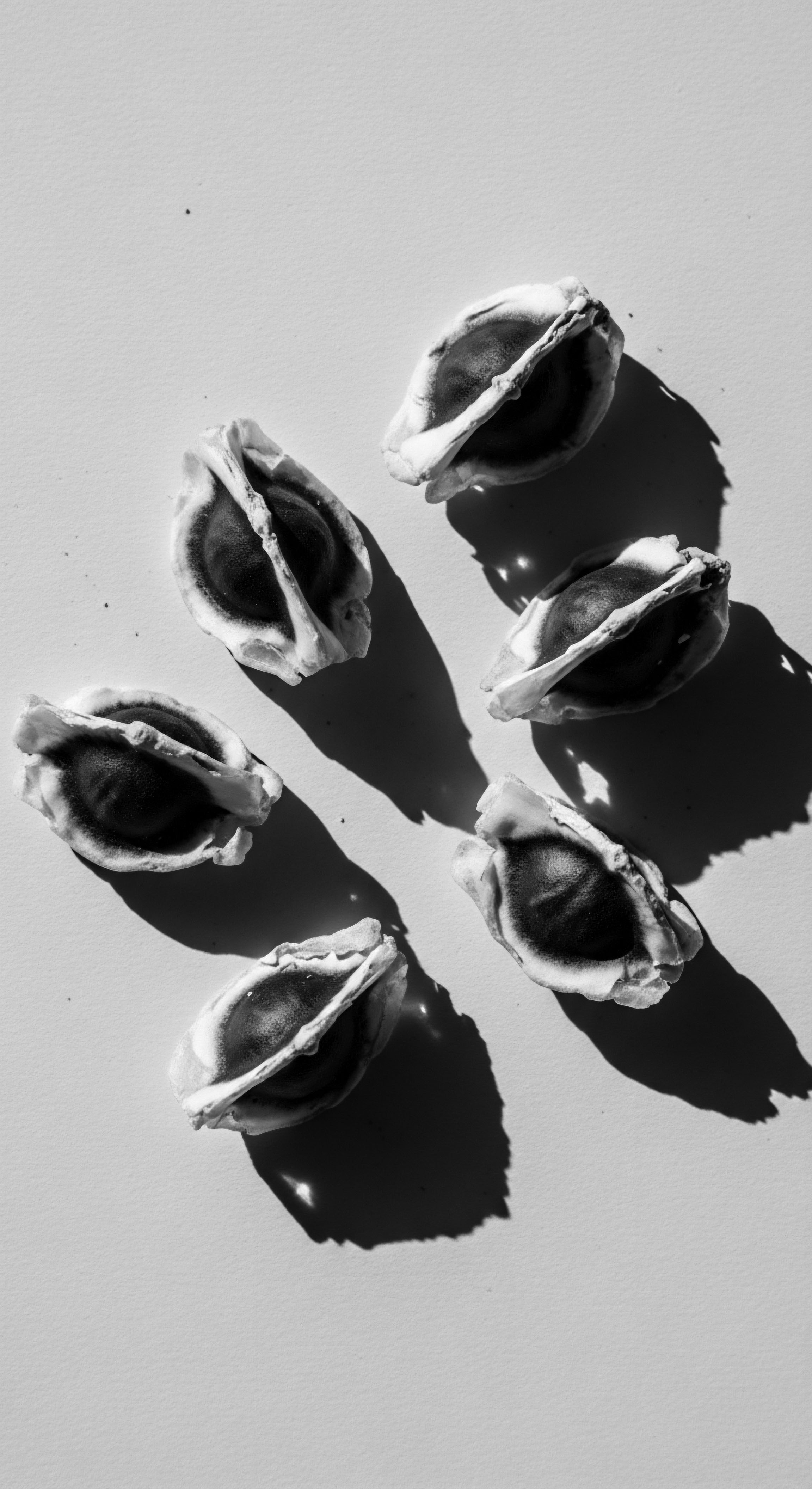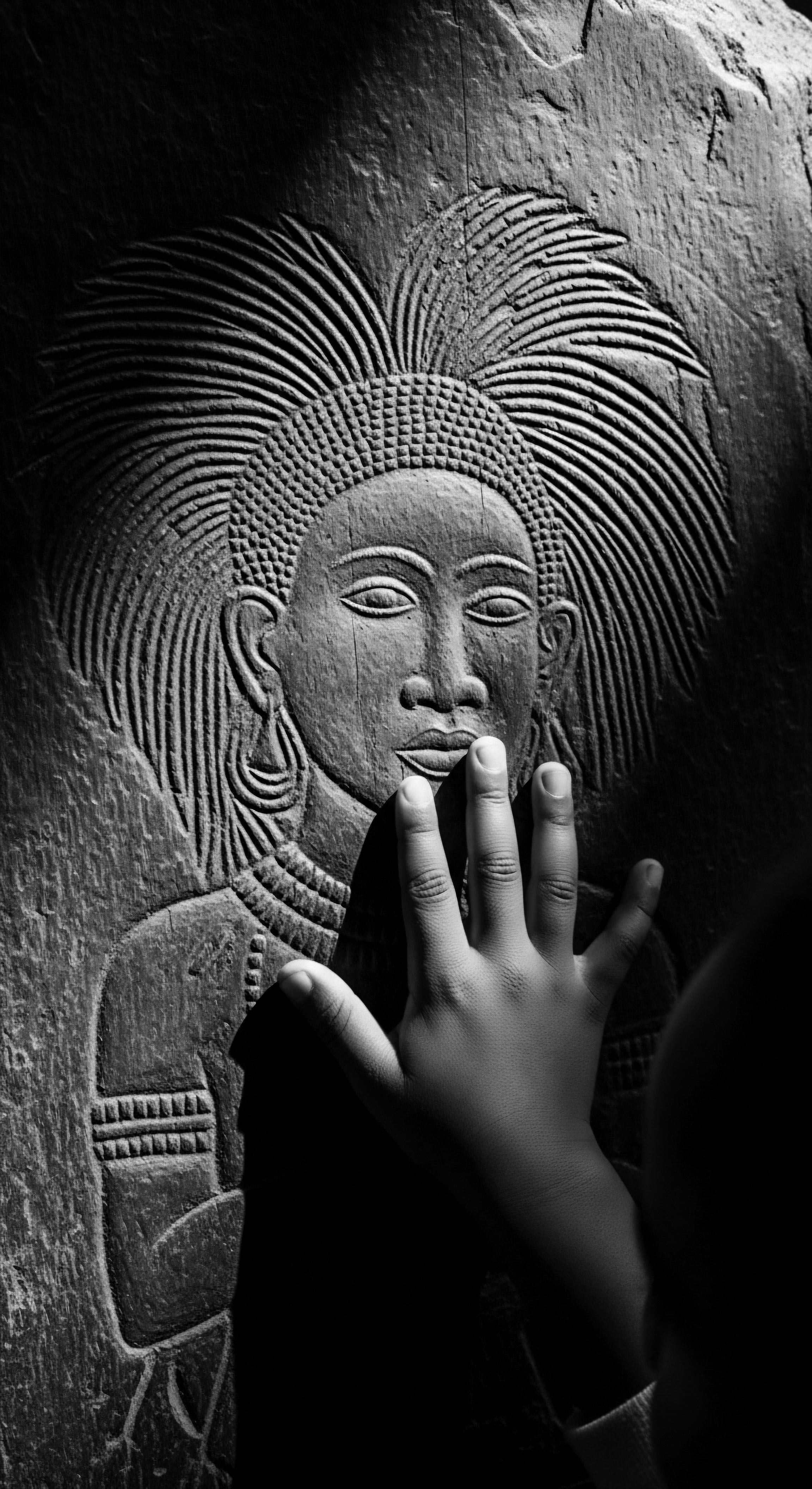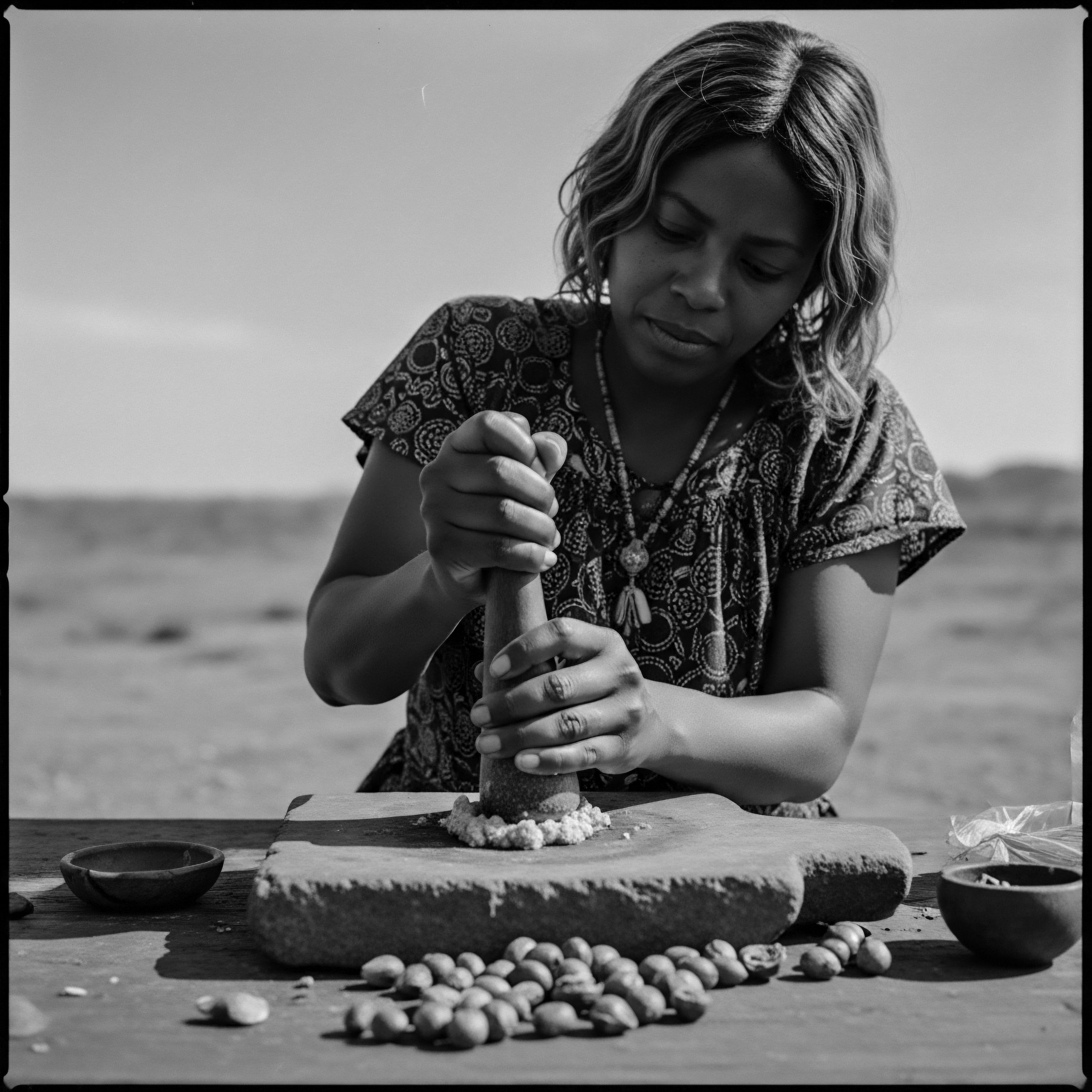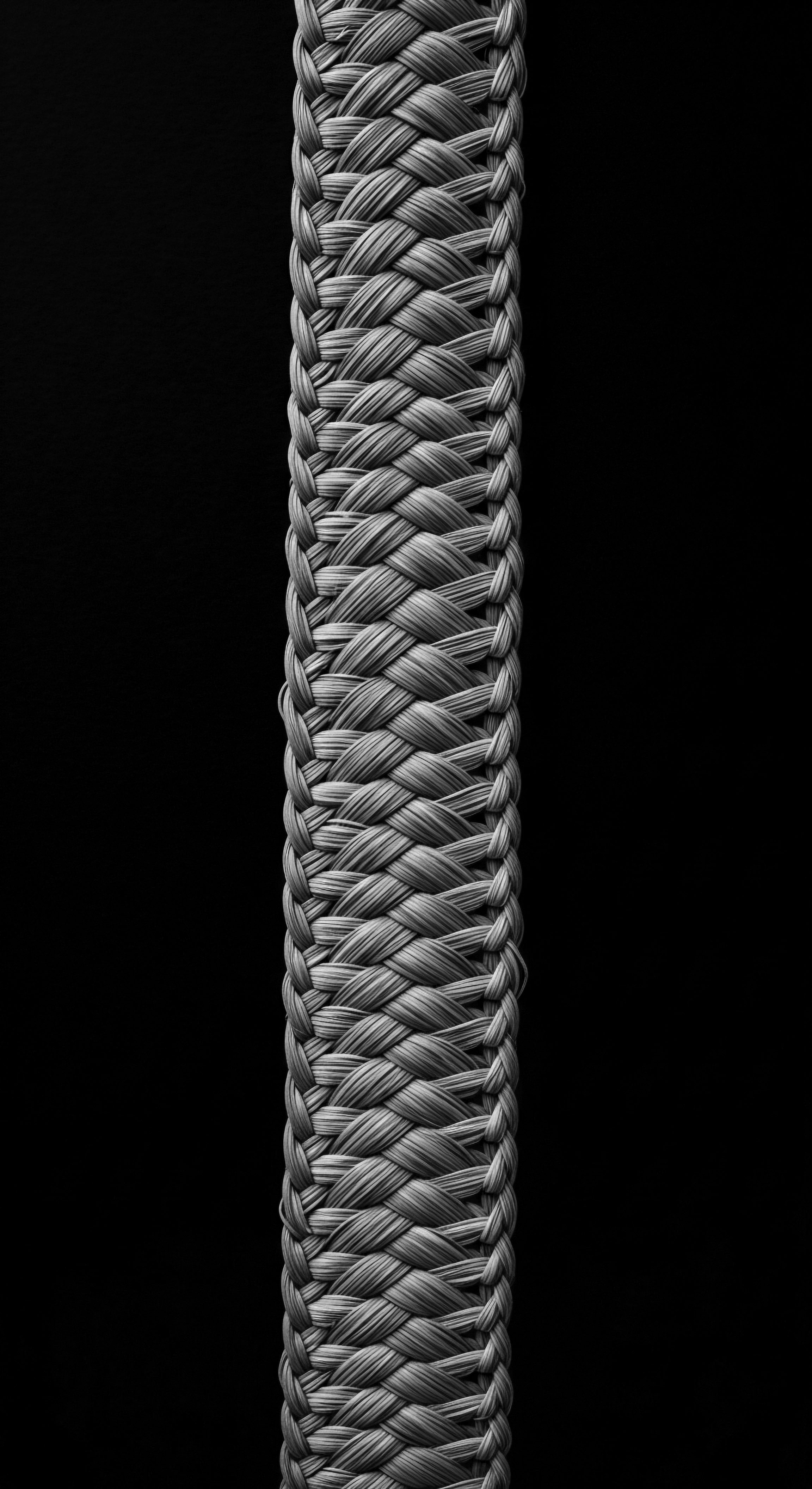
Fundamentals
The name Rosa Damascena calls forth more than mere petals and fragrance; it signifies a botanical elder, a profound presence in the ancestral tapestry of global wellness and beauty, particularly when viewed through the lens of textured hair heritage. This esteemed rose, often known as the Damask rose, holds a unique place in history, revered for its remarkable properties that extend far beyond its visual grace. At its foundational understanding, Rosa Damascena represents a powerful convergence of ancient wisdom and inherent natural efficacy, a plant whose lineage stretches back through millennia, whispering tales of care and resilience. Its designation encompasses a complex species of rose, primarily cultivated for its intensely aromatic flowers, from which precious essential oil and fragrant rose water are carefully extracted.
For those new to the depths of plant-based traditions, comprehending Rosa Damascena begins with recognizing its dual nature: a living botanical entity and a vessel for potent compounds. The processes by which these compounds are coaxed from the petals ❉ steam distillation for rose otto and solvent extraction for rose absolute ❉ are ancient techniques, refined over generations, each yielding a substance with distinct characteristics for various applications. The resultant rose water, a lighter, aqueous distillation, has been a cornerstone in beauty practices across numerous civilizations, a testament to its gentle yet effective nature.
Its primary meaning in the context of hair care for textured strands rests upon its hydrating, soothing, and balancing capabilities. The gentle humectant qualities of rose water assist in drawing moisture to the hair, offering a delicate touch of hydration without the burden of heavy emollients, a characteristic especially valued by those with coils and curls that thirst for gentle, consistent moisture.
The true significance of Rosa Damascena for textured hair care, even at this elemental level, lies in its capacity to harmonize with the unique structure of these hair types. The inherent porosity and intricate curl patterns of Black and mixed-race hair necessitate ingredients that provide moisture and offer support without disrupting the natural curl architecture. Rose water, with its mild astringent and anti-inflammatory properties, acts as a gentle ally for the scalp, helping to alleviate irritation and maintain a balanced environment conducive to hair well-being. This elemental understanding, though seemingly simple, sets the stage for appreciating the deeper heritage entwined with this timeless botanical.
Rosa Damascena, at its core, represents a botanical legacy, a distillation of ancient wisdom into potent elixirs valued for their hydrating and soothing essence, especially pertinent to the delicate needs of textured hair.
Consider the profound connection many ancestral hair care traditions held with nature’s bounty. The initial exploration of Rosa Damascena thus begins with acknowledging its role as a natural, plant-derived ingredient, embodying the ancestral philosophy of seeking wellness directly from the Earth.
- Botanical Identity ❉ Rosa Damascena is a species of rose, recognized scientifically for its intensely fragrant petals, from which various beneficial derivatives are made.
- Primary Derivatives ❉ The most common and historically significant forms are rose essential oil (attar of roses) and rose water (hydrosol), each offering distinct therapeutic profiles.
- Hair Care Value ❉ Its basic contribution to hair care for textured strands centers on providing lightweight hydration, soothing scalp conditions, and contributing to overall hair vitality.

Intermediate
Stepping beyond a foundational understanding, the intermediate meaning of Rosa Damascena unfolds as a botanical deeply interwoven with historical beauty rituals and its remarkable relevance for the nuanced care of textured hair. This plant’s heritage, stretching back through ancient civilizations, speaks to a consistent human appreciation for its multifaceted benefits. The Damask rose’s origins are believed to be in the Middle East, specifically regions of modern-day Turkey, Syria, and Iran, its very name a whisper of Damascus, a city historically entwined with its cultivation. From these ancient lands, its fragrant influence traveled along bustling trade routes, finding homes in diverse cultures, including those of North Africa, where its properties resonated with existing traditions of natural remedies.
The distinction of Rosa Damascena lies in its unique chemical composition, which confers a spectrum of therapeutic advantages. Rose water, the more accessible and widely used derivative for hair, contains compounds like flavonoids, phenolic acids, and tannins, which contribute to its antioxidant, anti-inflammatory, and antimicrobial properties. These components render it particularly effective in addressing common challenges faced by textured hair and scalp.
For instance, the anti-inflammatory action can bring relief to an irritated scalp, a frequent concern for those managing tightly coiled or highly manipulated hair, helping to reduce itching or flaking. The gentle astringent qualities help to balance scalp pH and manage oil production, promoting a healthier environment for hair growth without stripping essential moisture.
Consider the subtle yet profound impact of its natural fragrance, which extends beyond mere aroma into the realm of aromatherapy. The calming properties of rose oil and water are known to reduce stress and promote a sense of well-being, an aspect of care that transcends the purely physical to touch upon the emotional and spiritual dimensions of self-care. For many within Black and mixed-race communities, hair care has always been a ritualistic practice, a moment of connection, healing, and self-expression. The inclusion of ingredients like Rosa Damascena, with its historical legacy of promoting tranquility and beauty, aligns with these ancestral values of holistic care, where external adornment is often a mirror to internal harmony.
Rosa Damascena holds intermediate significance through its active botanical compounds, providing tangible benefits like anti-inflammatory and balancing properties, aligning with the holistic and ritualistic care traditions for textured hair.
The integration of Rosa Damascena into hair care routines, as seen in various historical contexts, speaks to its adaptability. In the Regency period in Europe, for example, rose water became a standard in beauty, used for cleansing and softening skin, and often incorporated into hair treatments, reflecting its widespread acceptance as a gentle yet effective beauty aid. While this may not directly speak to textured hair heritage, it highlights a global pattern of recognizing the rose’s utility across diverse hair types and beauty philosophies, setting a broader context for its potential.
Understanding its chemical properties and historical usage deepens the perception of Rosa Damascena as a cherished ingredient, particularly for those who seek to harmonize modern science with the rich traditions of ancestral hair care. Its properties address the unique needs of textured hair, fostering both physical well-being and a connection to ancient ways of nourishing the self.
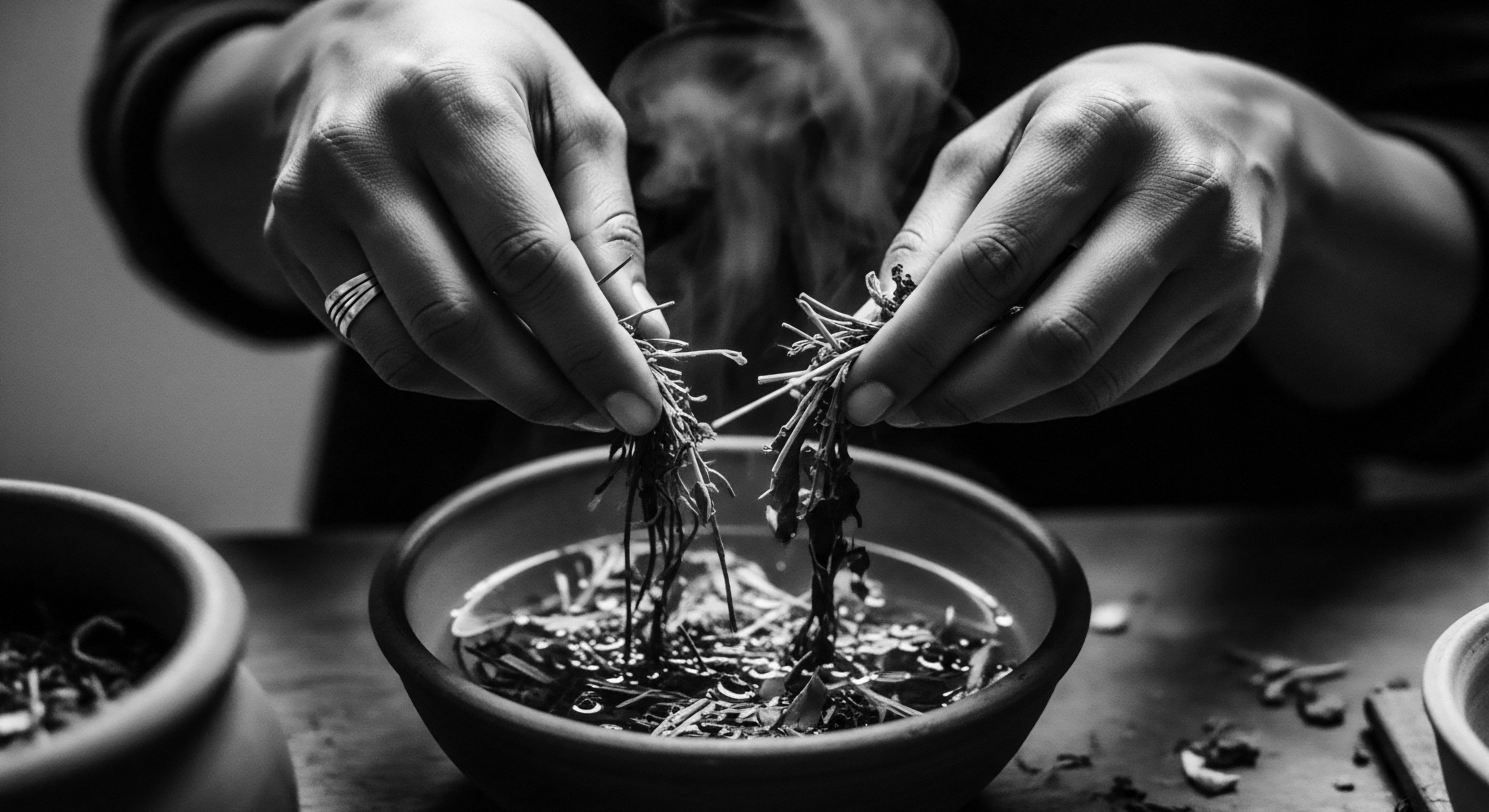
Academic
The academic understanding of Rosa Damascena transcends simple descriptive terms to delve into its complex phytochemistry, ethnobotanical trajectories, and its profound, though sometimes understated, connection to the legacy of textured hair care within diasporic communities. As a species, Rosa × damascena Mill. represents a perennial shrub within the Rosaceae family, predominantly cultivated for its intensely aromatic flowers.
Its botanical designation underscores its significance, yielding what is arguably the world’s most prized essential oil, rose otto, through meticulous steam distillation, and a revered hydrosol, rose water, both integral to ancient and contemporary therapeutic and cosmetic practices. This profound meaning is derived from a confluence of historical cultivation, scientific validation of its therapeutic compounds, and its enduring cultural symbolism.
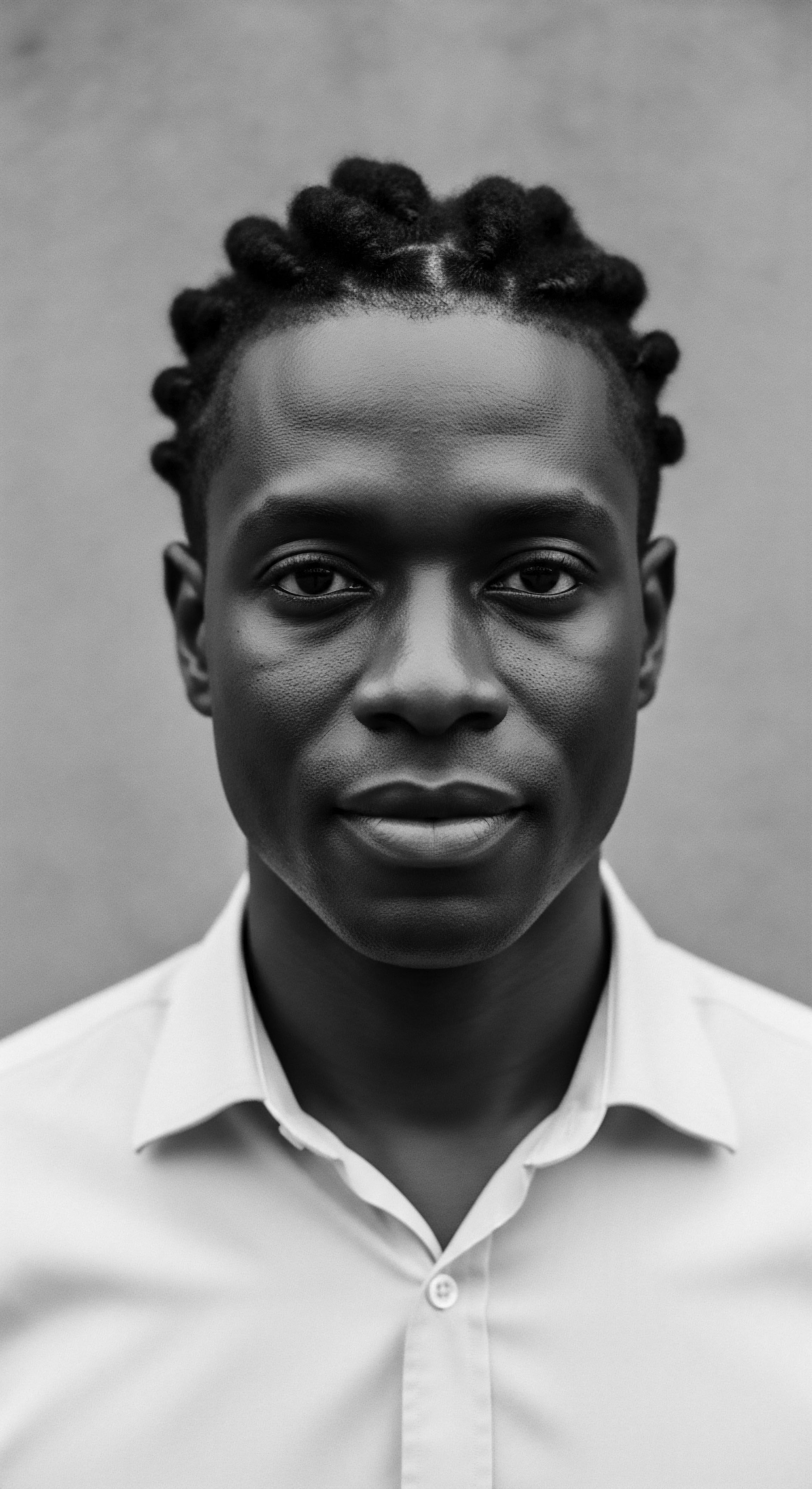
Phytochemical Composition and Therapeutic Efficacy
From an academic perspective, the efficacy of Rosa Damascena stems from its rich and intricate phytochemical profile. Its essential oil, a complex mixture of over 300 compounds, includes key constituents such as citronellol, geraniol, and phenylethyl alcohol, each contributing to its distinctive fragrance and therapeutic actions. Rose water, while containing lower concentrations of essential oil, is rich in a spectrum of phenolic compounds, flavonoids, and vitamins, which bestow upon it robust antioxidant, anti-inflammatory, and antimicrobial properties.
- Antioxidant Activity ❉ The abundance of phenolic compounds in Rosa Damascena extracts, such as anthocyanins and flavonoids, acts as potent free-radical scavengers. This protective capacity helps mitigate oxidative stress on hair follicles and scalp tissue, which can contribute to premature aging of hair and scalp irritation.
- Anti-inflammatory Effects ❉ Studies indicate that Rosa Damascena exhibits considerable anti-inflammatory properties, attributed to compounds that modulate inflammatory pathways. For conditions like seborrheic dermatitis or general scalp sensitivity often observed in textured hair practices involving tension or environmental stressors, this effect can be profoundly beneficial, offering symptomatic relief and fostering a calmer scalp environment.
- Antimicrobial Actions ❉ The presence of geraniol and citronellol in rose derivatives provides mild antibacterial and antifungal activity. This aspect holds particular significance for scalp health, aiding in the management of conditions such as dandruff, which may stem from fungal overgrowth, thereby supporting a balanced scalp microbiome essential for hair growth and retention.
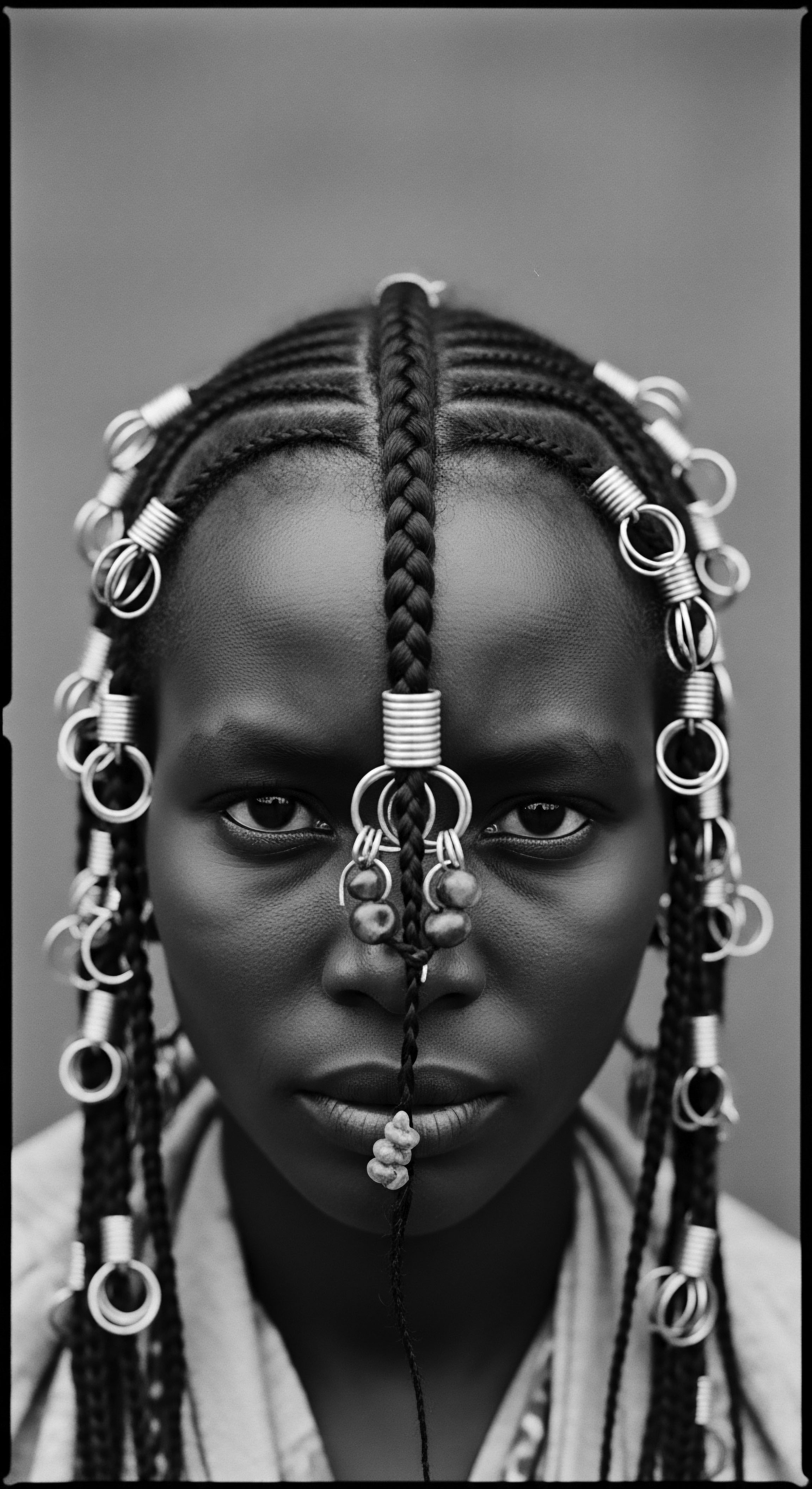
Ethnobotanical Journeys and Diasporic Resonances
The true academic depth of Rosa Damascena’s meaning for textured hair heritage lies in its ethnobotanical journey and its resonance with ancestral practices. While the Damask rose’s primary historical cultivation centers in the Middle East and parts of Asia, its movement along ancient trade routes facilitated its introduction and assimilation into diverse cultural landscapes, including North Africa. This geographical spread allowed its properties to be integrated into or to align with existing traditions of natural remedies and beauty rituals across these regions.
Consider the profound, often undocumented, exchanges of botanical knowledge that occurred throughout history. Enslaved Africans, forcibly brought to the Americas, carried with them not only their deep understanding of medicinal plants but also, remarkably, seeds braided into their hair, a quiet act of resistance and preservation of heritage. While direct historical records of Rosa Damascena being universally carried in this manner are elusive, the broader principle of utilizing natural elements for healing and beauty endured.
African American herbalism became a vibrant hybrid of African and Indigenous American plant knowledge, rooted in a profound connection to the land and its offerings. The ancestral wisdom that informed these practices valued plants that moisturized, healed the scalp, and strengthened hair ❉ qualities intrinsically linked to Rosa Damascena.
The historical transmission of botanical knowledge across continents, particularly through the resilience of diasporic communities, imbues Rosa Damascena with a significance beyond its chemical compounds, connecting it to a living heritage of natural self-care.
One might reflect on the shared principles underpinning diverse ethnobotanical traditions. A study reviewing African plants used for hair treatment and care identified 68 species as traditional African remedies for conditions such as alopecia, dandruff, and tinea. Remarkably, 58 of these species also demonstrated potential as antidiabetic treatments when taken orally, underscoring a holistic perspective where hair health is intertwined with overall physiological well-being (MDPI, 2024). While Rosa Damascena itself may not feature on this specific list of plants indigenous to sub-Saharan Africa, its established anti-inflammatory, antioxidant, and moisturizing benefits align precisely with the mechanisms of many traditionally employed African botanicals, which target scalp health and hair fortification.
This congruence illustrates how the inherent properties of the Damask rose could readily integrate into or echo the broader ancestral philosophy of plant-based wellness practices found across the diaspora, where a plant’s value was often assessed by its ability to address multiple bodily needs simultaneously. The historical use of plant-based ingredients for holistic care, from shea butter to various indigenous oils, stands as a testament to this deep connection.
The meaning of Rosa Damascena for textured hair, therefore, extends beyond its direct application. It embodies a principle: the sophisticated understanding of natural ingredients by ancestral communities who intuitively knew how to harness botanical powers for hair and scalp health. The modern rediscovery and scientific validation of Rosa Damascena’s properties allow for a powerful affirmation of this ancient wisdom, connecting current practices to a long lineage of informed self-care.
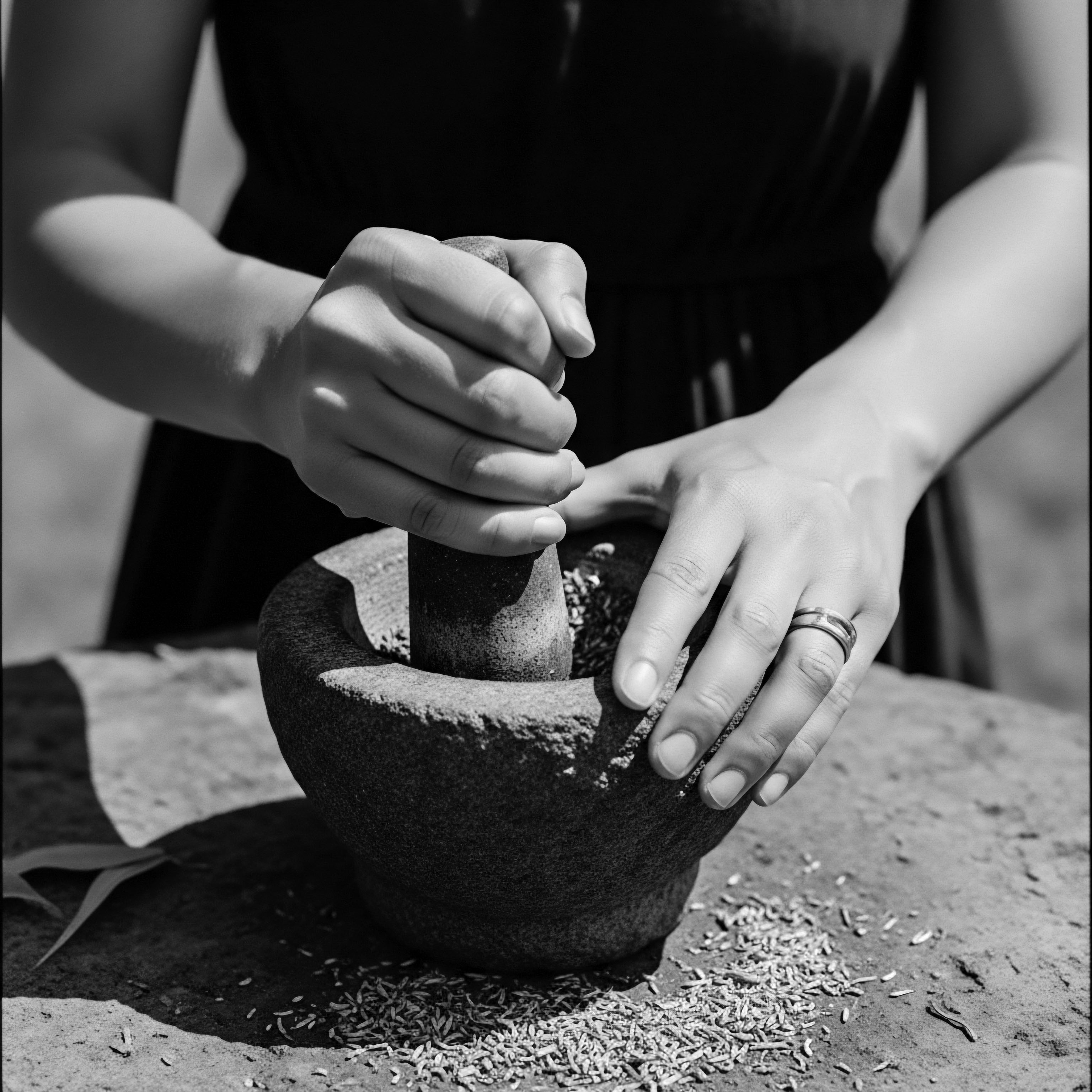
Evolving Significance: From Ancestral Knowledge to Contemporary Application
The contemporary application of Rosa Damascena in textured hair care represents a re-engagement with these historical threads, enhanced by modern scientific understanding. Its derivatives are increasingly incorporated into products specifically formulated for coils, kinks, and waves, acknowledging their specific needs for hydration, elasticity, and scalp equilibrium. This evolution is observed in products that leverage rose water as a lightweight detangler, a refreshing scalp tonic, or an ingredient in leave-in conditioners, providing moisture without buildup, which is a critical consideration for low-porosity hair types.
The academic investigation into traditional plants for hair care continues to bridge gaps between anecdotal ancestral accounts and empirical data. While more specific studies directly linking Rosa Damascena to documented Black hair heritage practices are still emerging, its scientifically verified properties ❉ hydration, soothing, and balancing ❉ position it as a botanical in clear alignment with the holistic wellness principles deeply rooted in Black and mixed-race hair traditions. The enduring presence of rose in Middle Eastern and North African beauty regimens, and the continuous flow of knowledge across interconnected global communities, further solidifies its subtle yet significant place within the broader narrative of natural hair care heritage. Its meaning is thus a dynamic interplay of historical presence, scientifically proven efficacy, and cultural resonance.
This plant’s ability to soothe and restore finds particular resonance in the historical context of Black and mixed-race hair, where resilience has been a constant thread through generations. The ancestral knowledge of utilizing natural elements to strengthen and protect hair in the face of adversity is a testament to the profound wisdom embedded in these communities. Rosa Damascena, with its protective and regenerative properties, quietly joins this long lineage of botanical allies.
The study of ethnobotany continually reminds us that traditional knowledge often precedes modern scientific discovery. What our ancestors knew through observation and inherited wisdom, contemporary research now frequently confirms through rigorous analysis. The Damask rose is a living example of this continuum, its widespread traditional use for beauty and health serving as a compelling precursor to today’s detailed understanding of its biochemical actions. This cyclical affirmation strengthens the appreciation for inherited botanical intelligence.
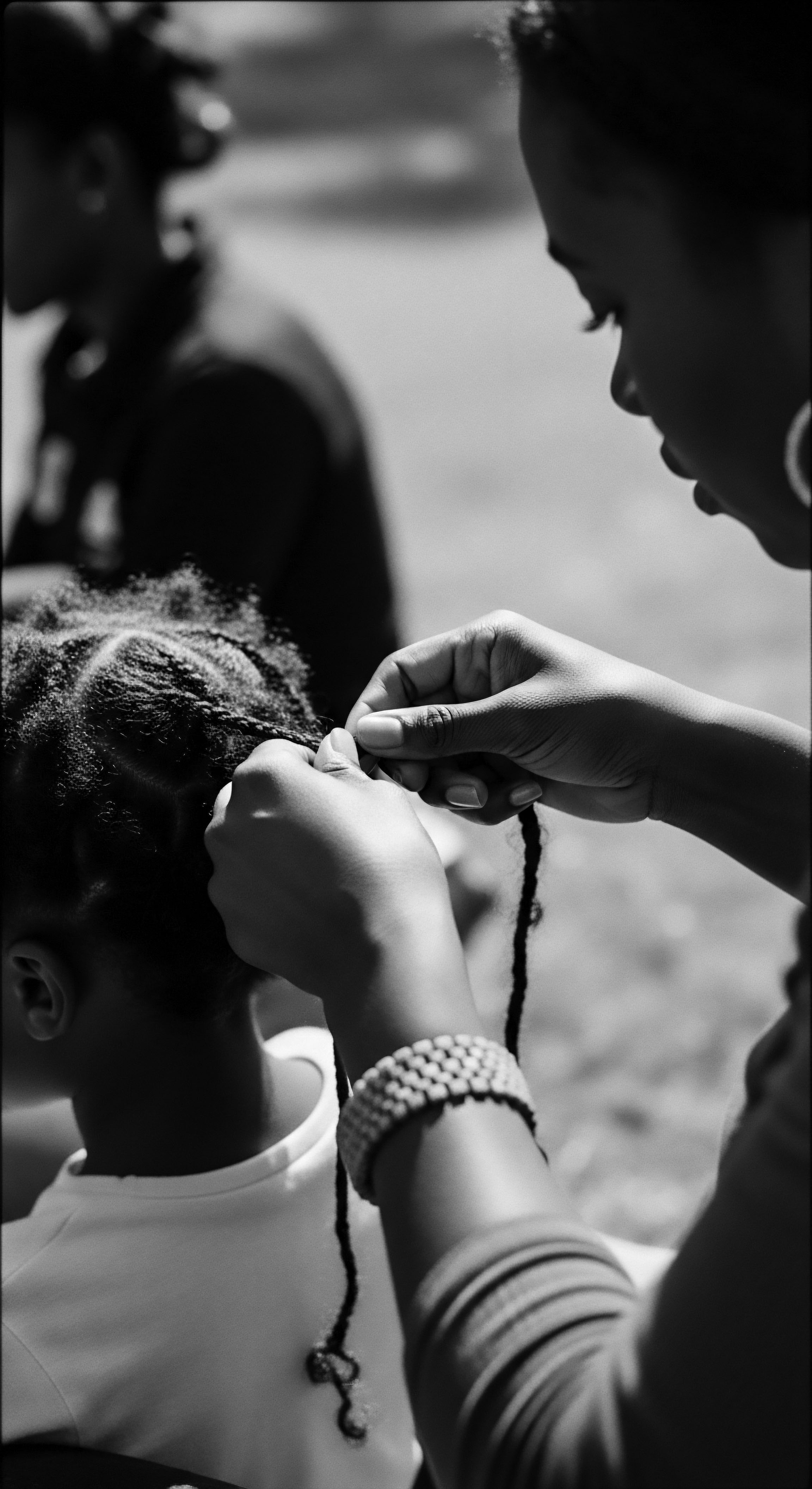
Reflection on the Heritage of Rosa Damascena
The journey through the definition of Rosa Damascena, from its elemental form to its complex scientific and historical dimensions, culminates in a profound reflection on its enduring heritage, particularly as it touches the very soul of textured hair and its communities. The Damask rose, with its ancient roots and pervasive presence in beauty and wellness traditions across continents, becomes a symbol of continuity, of knowledge passed down through the quiet whispers of generations. It embodies the deep ancestral reverence for nature’s profound offerings, a reverence that forms the bedrock of Black and mixed-race hair care philosophies.
In the gentle mist of rose water, or the rich caress of rose oil, one finds not merely a cosmetic ingredient, but a tangible link to a legacy of self-possession and resilience. For centuries, across Africa and its diaspora, hair has served as a powerful declaration of identity, status, and spirituality, often cared for with ingredients drawn directly from the Earth. The intentionality behind each application of a natural remedy, whether for hydration, healing, or adornment, speaks to a holistic approach where inner and outer well-being are intrinsically intertwined. The presence of Rosa Damascena in North African beauty traditions, its ancient adoption into various beauty regimens globally, and its scientifically validated properties of soothing and nurturing, allow us to see it as a kindred spirit to the diverse botanicals cherished by Black and mixed-race hair traditions.
The “Soul of a Strand” ethos finds deep resonance in the story of the Damask rose. Each coil, kink, and wave carries an archive of history, of adaptation, and of beauty reclaimed. The properties of Rosa Damascena ❉ its ability to calm an irritated scalp, to hydrate thirsty strands, and to offer a moment of fragrant tranquility ❉ align with the very needs and rituals that have sustained textured hair through its multifaceted journey.
It reminds us that ancient botanical wisdom, often dismissed or overlooked, holds invaluable keys to our contemporary wellness. The exploration of Rosa Damascena thus ceases to be a purely academic exercise; it transforms into an act of remembrance, a celebration of inherited knowledge, and an affirmation of the beauty that blossoms when heritage is honored in every aspect of our care.

References
- MDPI. (2024). Cosmetopoeia of African Plants in Hair Treatment and Care: Topical Nutrition and the Antidiabetic Connection? Retrieved from.
- El Malahi, S. Ganoudi, M. & Idrissi Hassani, L. M. (2025). Beyond Beauty: A Look At The Damask Rose’s Origin, History And Geographical Spread. International Journal of Agriculture and Environmental Research, 11 (01).
- Penniman, L. (2020). Healing Grounds: Climate, Justice, and the Deep Roots of Regenerative Farming. Chelsea Green Publishing.
- City Skin Clinic. (2025, April 1). Benefits of Rosewater for Your Skin, Hair & Best Ways to Use It.
- Gya Labs. (n.d.). The Incredible Benefits of Rose Oil for Hair Care.
- HeyCurls. (2020, June 1). A Natural Hair Love Affair With Rose Water.
- Zipe It. (n.d.). The Timeless Allure of Ark Gulab (Rose Water): Benefits, Uses, and History.
- Croda Beauty. (2024, November 19). The Timeless Greatness of Rose in Natural Cosmetics: A Journey from Ancient Times to a Promising Future.
- Damascent. (2023, March 29). “The Seductive and Timeless Allure of Rosa Damascena: Discovering the Best Rose in the World for Perfumery and Beyond”.
- Lush South Africa. (n.d.). Beauty secrets of the past.
- Medfoods. (2020, March 3). The History of Rosa Damascena (Rose Water).
- PubMed Central. (2023, November 23). Ethnobotanical study on medicinal plant knowledge among three ethnic groups in peri-urban areas of south-central Ethiopia.
- ResearchGate. (n.d.). (PDF) Rosa Damascene Mill. (Rose): A versatile herb in cosmetology.
- Wikipedia. (n.d.). Rose.

